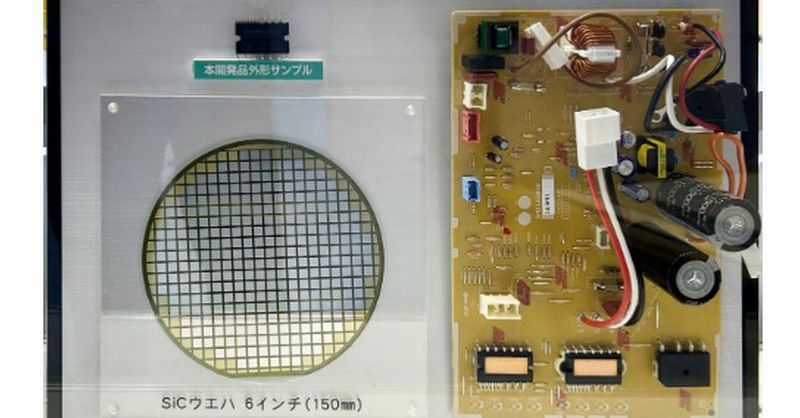Power Efficient Air Conditioners: The Rise of SiC Technology
The relentless summer heat is driving a global demand for more efficient cooling solutions. Enter Silicon Carbide (SiC), a semiconductor technology poised to revolutionize air conditioning and significantly reduce energy consumption. This isn't just about saving money on your electricity bill; it's about creating a more sustainable future for our planet. This article explores the exciting potential of SiC-based air conditioners and how they're shaping the future of cooling.
What is Silicon Carbide (SiC) and Why is it Revolutionary?
Silicon Carbide is a wide-bandgap semiconductor material offering superior performance compared to traditional silicon-based technologies. This translates to several key advantages in power electronics, including:
- Higher Switching Frequencies: SiC devices can switch on and off far faster than silicon, minimizing energy loss during operation.
- Higher Operating Temperatures: SiC can withstand significantly higher temperatures, leading to improved efficiency and reliability.
- Lower Losses: Reduced switching losses and conduction losses directly translate to lower energy consumption and greater efficiency.
- Smaller Size and Weight: SiC devices are often smaller and lighter than silicon equivalents, simplifying design and integration.
These advantages combine to make SiC ideally suited for power electronics in air conditioning systems, where efficiency is paramount.
How SiC Improves Air Conditioner Efficiency
Traditional air conditioners utilize inverters, which control the speed of the compressor. SiC-based inverters offer a significant improvement in these systems:
- Improved Inverter Performance: SiC's faster switching speeds enable more precise control over the compressor, leading to optimized energy consumption based on the cooling demand. This means less wasted energy and more precise temperature control.
- Reduced Energy Consumption: By minimizing energy losses in the inverter, SiC significantly reduces the overall energy consumption of the air conditioner. This directly translates to lower electricity bills and a smaller carbon footprint.
- Extended Lifespan: The higher operating temperatures and reduced stress on components contribute to a longer lifespan for the air conditioner. This reduces the need for frequent replacements, saving both money and resources.
The Environmental Impact of SiC Air Conditioners
With climate change a pressing global concern, energy-efficient appliances are crucial. SiC air conditioners contribute meaningfully to reducing energy consumption and lowering greenhouse gas emissions. Consider these benefits:
- Reduced Carbon Footprint: Lower electricity consumption directly translates to a reduction in the amount of carbon dioxide released into the atmosphere.
- Sustainable Cooling Solutions: SiC technology contributes to the development of more sustainable and environmentally friendly cooling systems.
- Energy Security: Reduced reliance on electricity grids benefits overall energy security.
The Future of SiC in Air Conditioning
The adoption of SiC in air conditioners is still in its relatively early stages. However, the technological advantages and growing awareness of the need for energy efficiency are driving rapid innovation and adoption. We can expect to see:
- Wider Availability: More manufacturers are incorporating SiC technology into their air conditioner designs, making them more widely available to consumers.
- Further Efficiency Gains: Ongoing research and development will continue to push the boundaries of SiC technology, leading to even greater efficiency improvements.
- Smart Integration: Integration with smart home technology will enable greater control and optimization of energy consumption.
Conclusion: A Cooler, Greener Future with SiC
SiC technology offers a powerful pathway to a more sustainable and energy-efficient future in cooling. By understanding the benefits of SiC-based air conditioners, consumers can make informed choices that align with their environmental responsibility and financial savings. Choosing an air conditioner with SiC technology is a small step that can collectively contribute to a big positive impact on the planet. Look for "SiC inverter" or similar designations when purchasing your next air conditioner to reap the benefits of this innovative technology.
